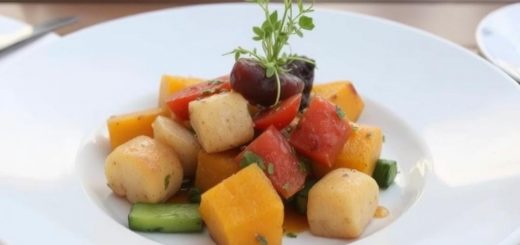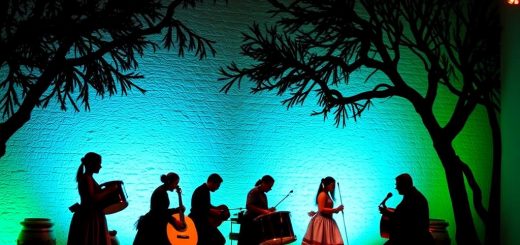Understanding Cypriot Kafenio Culture: The Art of Coffee
- 1. The Origins and Evolution of Kafenio Culture in Cyprus
- 2. Decoding Cypriot Coffee Culture: What Sets It Apart?
- 3. Kafenio Cyprus: A Closer Look at the Atmosphere and Offerings
- 4. The Role of Kafenia in Social Life Cyprus
- 5. The Modern Landscape: Coffee Shops Cyprus Today
- 6. Kafenio Culture and the Real Estate Connection
- 7. Preserving Tradition Amid Changing Times
- 8. Immersing Yourself in the Kafenio Experience
- 9. Embracing the Essence of Cypriot Coffee Culture
- 10. Step into the Story: Your Next Cup Awaits
- 11. Frequently Asked Questions
- 12. Author
If you ever find yourself wandering the sun-soaked streets of Cyprus, hands warmed by a simple cup of coffee, you are diving headfirst into an enduring tradition that goes well beyond just a morning ritual. This is the heartbeat of social life Cyprus reveals through its small but cherished establishments known as kafenia. Rooted deeply in both history and modern culture, these traditional cafés Cyprus offer an experience that blends hospitality, storytelling, and the unique craft of Cypriot coffee culture. For those intrigued by the island’s lifestyle and even the prospects of investing, such as in Larnaca real estate for sale, immersing oneself in kafenio Cyprus culture unlocks an essential layer of the local way of life.
The Origins and Evolution of Kafenio Culture in Cyprus
The kafenio, a staple of Cypriot towns and villages, has a story that dates back centuries. The word itself owes its lineage to the Ottoman influence, where coffeehouses served as crucial hubs for communication and gathering. Yet, unlike their often bustling counterparts in larger urban centers, Cypriot kafenia evolved into intimate spaces where people exchanged news, debated over politics, or just savored moments of quiet companionship. This evolution is a testament to how community bonds were forged around the humble cup of coffee.
Compared to the more commercialized coffee shops Cyprus now boast, traditional kafenia maintain the simplicity and slow pace that confront the hurried rhythms of modern life. Despite the influx of global coffee chains, the enduring charm of kafenia lies in their traditional recipes, notably the Cypriot coffee brewed with care, and the comfort of familiar faces. Their survival into the 21st century speaks volumes about their cultural significance.
At its core, a kafenio is much more than a coffee shop; it is the social backbone of Cypriot communities, weaving together history and daily life through shared cups of coffee.
Decoding Cypriot Coffee Culture: What Sets It Apart?
Cypriot coffee culture is distinct in its preparation and social context. The coffee is finely ground, boiled slowly in a small pot called a briki, and served unfiltered in tiny porcelain cups. This method produces a thick, dark espresso-like brew appreciated not just for its taste, but for the ritual that surrounds its making and drinking.
Drinking Cypriot coffee is a slow, deliberate act. It encourages pause and conversation, often accompanied by sweet treats like loukoumi—a local delight that complements the bitterness of the coffee perfectly. The thick coffee grounds left at the bottom are a cultural trademark, even known for their role in fortune telling, a quirky tradition still respected in many households.
The richness of Cypriot coffee lies not just in its flavor but in the ritual that commands presence and conversation.
Kafenio Cyprus: A Closer Look at the Atmosphere and Offerings
Walking into a kafenio feels like stepping into a different time. Interiors are often adorned with wooden furniture, checkerboard tables, and walls decorated with vintage photographs. The ambiance is inviting, informal, and deeply rooted in local life. Men and women, young and old, gather in these cafés to bridge generational gaps over coffee and conversation.
While the primary offering is the unmistakable Cypriot coffee, many kafenia also serve local spirits, such as zivania, and light snacks that pair well with drinks. The hospitality is genuine; patrons expect neither rush nor pretense, but simple warmth and a chance to soak up the pace of small-town life.
The Role of Kafenia in Social Life Cyprus
Kafenia embody the essence of social life Cyprus fosters. These cafés are meeting points for local news, political discussions, or family gatherings. The exchange that happens over a cup is rich and multifaceted—connecting the community, preserving local dialects, and sustaining traditions.
In rural areas, kafenia act as informal town halls, reinforcing social networks and ensuring that communal life stays robust. Even for newcomers or visitors interested in the island, participating in kafenio rituals offers a direct window into the social fabric, where sharing coffee translates into sharing stories and trust.
Engaging with a kafenio is engaging with the lifeblood of Cypriot social interaction—a place where coffee and conversation form the pillars of community.
The Modern Landscape: Coffee Shops Cyprus Today
The faces of coffee shops Cyprus have shifted in recent decades. Modern cafés embraced a more international coffee culture, offering espresso machines, lattes, and a variety of global pastries. These venues target a younger, sometimes tourist-heavy crowd, seeking convenience and stylistic flair. Yet, even here, many establishments honor the traditional Cypriot coffee by including it on their menus.
This duality illustrates the island’s cultural dynamism. On one side, there is a respect for the slow, communal experience of traditional kafenia; on the other, the growing cosmopolitan trend that blends Cyprus with global tastes. Both coexist, ensuring that coffee culture remains vibrant and accessible to wider audiences.
Comparing Traditional and Modern Coffee Experiences
| Aspect | Traditional Kafenio | Modern Coffee Shops |
|---|---|---|
| Atmosphere | Intimate, communal, slow-paced | Trendy, fast, sometimes noisy |
| Menu | Cypriot coffee, local snacks | Variety of espresso-based drinks, international pastries |
| Clientele | Locals, all ages | Younger generation, tourists |
| Social Role | Community hub | Casual meeting point |
Kafenio Culture and the Real Estate Connection
Those exploring larnaca real estate for sale soon realize that proximity to a kafenio means living close to the social pulse of the city. Buyers and residents often seek neighborhoods where these traditional cafés remain active, indicating a vibrant and welcoming community. The kafenios provide more than coffee; they offer an entry point into Cypriot lifestyle, which remains a significant selling point for both locals and foreign investors.
Living near a kafenio isn’t just about convenience; it’s an invitation to step into a world where everyday life slows down, neighbors know each other, and stories are exchanged face to face. This aspect can be crucial when choosing property in Cyprus, especially for those who value cultural immersion over mere amenities.
Preserving Tradition Amid Changing Times
As Cyprus modernizes, the challenge lies in preserving these traditional cafés without turning them into mere relics of the past. Local communities and some initiatives actively promote the kafenio as cultural heritage worth protecting. From municipal support for small businesses to cultural festivals, efforts aim to keep the art of coffee and conversation alive against the pressures of urban development and consumer trends.
The resilience of kafenio culture shows a balancing act: honoring timeless customs while navigating the island’s inevitable transformation into a more globalized, fast-paced society.
Kafenia are living symbols of cultural heritage, sustaining a way of life that goes beyond commerce, into the realm of shared identity and history.
Immersing Yourself in the Kafenio Experience
For travelers or new residents alike, fully appreciating kafenio Cyprus means engaging with locals, embracing the slow pace, and savoring the nuances of Cypriot coffee culture. It’s about more than the drink—it’s about stories, laughter, debate, and moments of reflection.
When you visit a kafenio, don’t hesitate to strike up a conversation, ask about the coffee-making process, and try the traditional snacks. Your patience and interest will often be met with warmth and shared pride, opening doors to deeper understanding of Cypriot life.
Quick Tips to Enjoy Kafenio Culture
- Take your time and don’t expect quick service.
- Try Cypriot coffee the traditional way — unfiltered and strong.
- Accompany your coffee with local sweets like loukoumi.
- Engage with the people around you; it’s part of the experience.
Embracing the Essence of Cypriot Coffee Culture
In a world accelerating toward automation and digital connections, the kafenio remains a reminder of the power of simple human interactions. Cypriot coffee culture is a blend of history, art, and social fabric—a culture that needs to be lived to be fully understood.
Whether you’re here to explore larnaca real estate for sale or just to enjoy a moment’s rest in a traditional coffee shop, the kafenio invites you to slow down, share stories, and sip deeply from a tradition as rich and complex as the coffee itself.
Step into the Story: Your Next Cup Awaits
If you decide to venture into the island’s towns, follow the inviting aroma that leads to a kafenio door. There, beyond the steam of the briki pot, you’ll find connection, culture, and a small but essential piece of Cyprus. In this way, the humble cup of coffee folds you into a centuries-old narrative that still thrives today.
Frequently Asked Questions
- What makes Cypriot coffee different from other types of coffee?
Cypriot coffee is unfiltered and brewed slowly in a briki, resulting in a thicker, richer drink served in small cups, often with grounds left at the bottom. - Are kafenia only found in rural areas or cities too?
Kafenia exist throughout Cyprus, both in small villages and urban centers, acting as community hubs everywhere. - Can tourists easily experience traditional kafenio culture?
Yes, many kafenia welcome tourists, especially if approached with respect and curiosity about the tradition. - How does kafenio culture reflect broader social life Cyprus fosters?
It emphasizes community bonding, face-to-face interaction, and shared stories across generations, forming the backbone of social relations. - Is traditional Cypriot coffee available in modern coffee shops Cyprus?
Many modern cafés offer it alongside international coffee options to cater to diverse preferences. - Why do some people say the coffee grounds are used for fortune telling?
It’s a folk tradition where the pattern of the grounds left after drinking is interpreted to reveal future events. - Does proximity to a kafenio affect the value of larnaca real estate for sale?
Often yes, as kafenia indicate active neighborhoods and a vibrant community life, attractive to buyers.



